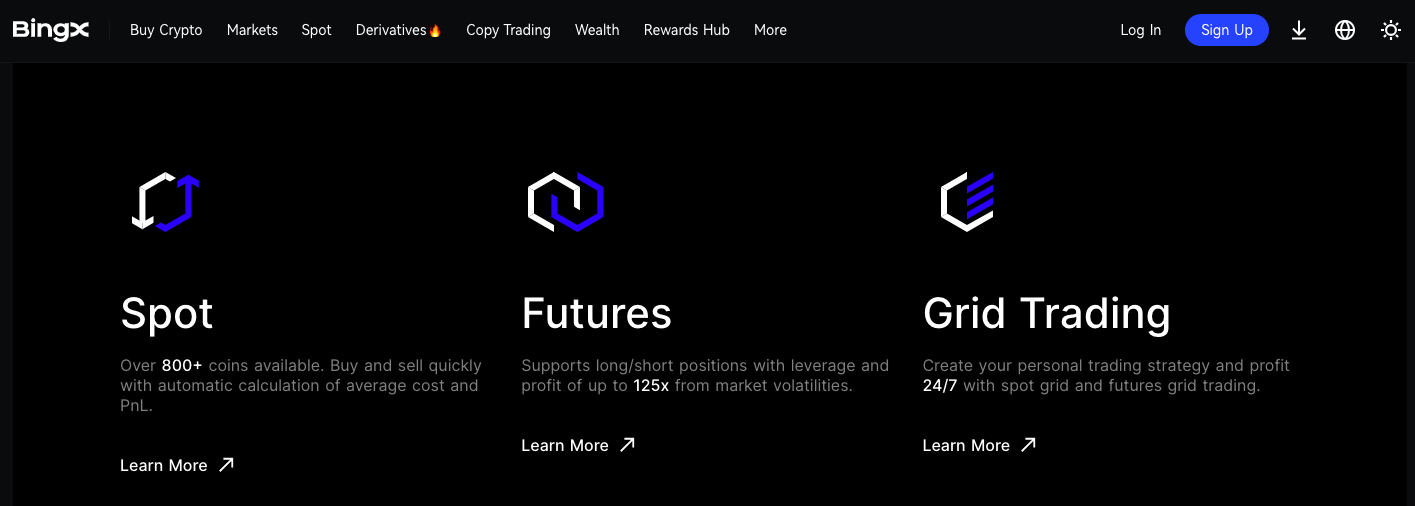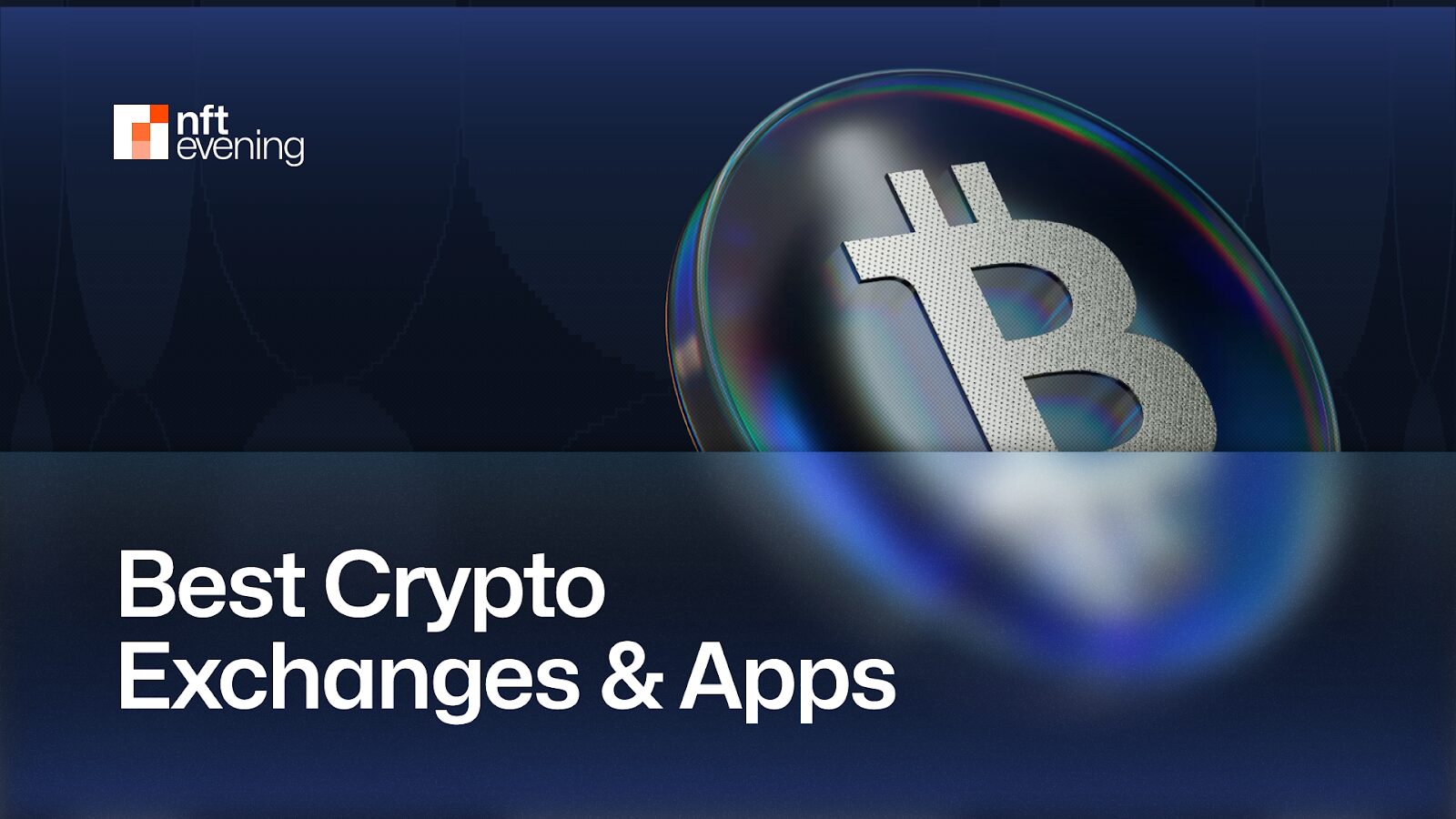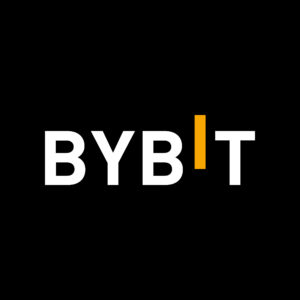Crypto
When choosing the best crypto exchanges for trading, you need more than just a list of options. The right platform can greatly impact your trading experience, offering you a mix of security, low fees, and a wide range of supported coins. In this guide, we’ll explore the top crypto trading platforms that excel in these areas, helping you make an informed decision.
Key Takeaways:
- A crypto exchange is a digital asset trading platform that allows you to buy, sell, and trade various cryptocurrencies securely and efficiently.
- The best crypto exchanges are Binance, Bybit, MEXC, BingX, Crypto.com, Coinbase, Kraken, Uniswap, Bitget, and KuCoin due to their competitive trading fees, and strong security features.
- When choosing a crypto exchange, consider factors like supported coins, trading fees, security, customer reviews, and whether it is available in your country.
Crypto Best Crypto Exchanges for November 2024
We have reviewed over 30 popular crypto exchanges based on their fees, features, trading volume, list of supported coins, and more. Here is our final list of the top 10 best cryptocurrency exchanges:
- Binance: Best for beginners
- MEXC: Best for zero-fee trading
- Bybit: Best for advanced derivatives traders
- BingX: Best Bitcoin exchange for grid traders
- Crypto.com: Best exchange for mobile app users
- Coinbase: Best for institutional crypto investors
- Kraken: Best for security
- Uniswap: Best decentralized crypto exchange
- Bitget: Best for copy trading
- KuCoin: Best for altcoin trading
Crypto 10 Best Crypto Exchanges Reviewed
Here is a detailed review of the best crypto exchanges based on their features, fees, availability, and pros & cons.
1. Binance: Best for beginners

Binance has quickly become a leading crypto exchange since its start in 2017. With daily trading volumes often surpassing $20 billion, it’s now a preferred choice for over 216 million traders globally. The platform supports over 350 cryptocurrencies and features an easy-to-use interface for newcomers and seasoned traders.
Binance’s popularity comes from its wide range of services, including spot trading, futures, options, and a peer-to-peer marketplace. For beginners, Binance Academy offers free educational resources to help them understand the crypto landscape. The platform’s security is also strong, with a Secure Asset Fund for Users (SAFU) that sets aside 10% of trading fees to protect user funds in emergencies.
The native Binance Coin (BNB) offers perks like lower trading fees and access to token sales on Binance Launchpad. Binance can handle over 1.4 million transactions per second, ensuring quick trades. Plus, you can earn passive income by staking your crypto through Binance Earn, with some assets offering up to 20% annual returns.
Fees and Availability
Binance uses a tiered fee structure, with spot trading fees starting at 0.1% maker/taker. You can reduce fees to 0.012% maker and 0.024% taker if you hold BNB and trade large volumes. Withdrawal fees (or gas fees) vary by cryptocurrency and network congestion. Check the full Binance fee structure here.
The Binance exchange is accessible in over 180 countries, but services may be restricted in some areas due to local regulations.
U.S. residents must use Binance.US, a separate platform with fewer features. The platform supports various fiat deposit methods, including bank transfers, credit/debit cards, and third-party payment options.
Pros
- Competitive trading fees, especially when using BNB (25% off)
- High liquidity across trading pairs
- Launchpad for investing in new projects
- Strong focus on user education
- Multi-language support for global accessibility
Cons
- Issues with the Securities and Exchange Commission (SEC)
- Slow customer support during busy periods
2. MEXC: Best for zero-fee trading

MEXC Exchange, established in 2018, has rapidly grown into a key player in digital currency trading. Serving over 10 million customers across more than 170 countries, it provides a wide range of trading options including regular buying and selling, perpetual futures contracts, copy trading, and staking rewards.
You can trade more than 2,500 different crypto assets across 3,000+ trading pairs, making MEXC one of the most varied platforms for altcoin enthusiasts. The exchange is well-known for quickly adding new tokens to its listings, often being one of the first to offer trading for up-and-coming digital currencies. MEXC takes security seriously, using advanced wallet technology and regular safety checks to keep user funds protected.
The platform is easy to use for both newcomers and experienced traders alike. Holders of MX, the exchange’s own token, enjoy perks like lower trading costs and special access to new token sales. For those who prefer trading on their phones, MEXC offers mobile apps for both Android and iPhone users. With round-the-clock customer help and support for 18 different languages, MEXC continues to be the top exchange.
Fees and Availability
MEXC does not charge fees for the spot market. It’s 0% maker/taker fees. For futures trading, the fees are lower, starting at 0% for makers and 0.01% for takers. You can cut these fees in half if you pay with MX tokens. Here is the full MEXC fee structure with VIP privileges.
MEXC works in over 170 countries around the world, but you can’t use it in the United States, Canada, and a few other places. However, it is also a no-KYC crypto exchange, therefore you can still use it. But it’s against the terms and conditions.
Pros
- 2,500+ tradable digital assets including many altcoins
- Zero-fee cryptocurrency spot trading
- 200x leverage trading for advanced traders
- An easy-to-use platform for all skill levels
- Solid security measures with no major breaches so far
Cons
- Does not support direct fiat-to-bank withdrawals in most countries
- Only supports 3 fiat currencies for P2P trading
- No-KYC trading can be a security risk
3. Bybit: Best for advanced derivatives traders

Bybit is one of the best crypto derivatives trading platforms. Founded by Ben Zhou, the platform has grown to serve over 40 million users. Its primary focus is crypto derivatives trading, offering perpetual contracts, futures, and options on major cryptocurrencies like Bitcoin, Ethereum, and XRP. The exchange boasts impressive liquidity, with daily trading volumes often exceeding $10 billion.
One of Bybit’s standout features is its powerful trading engine, capable of processing up to 100,000 transactions per second. This ensures minimal latency and smooth order execution, even during periods of high market volatility. The platform also offers up to 100x leverage on certain trading pairs.
Bybit has invested heavily in security, implementing multi-signature cold wallets and regular security audits to protect user funds. The exchange also provides a comprehensive educational section, including trading guides, market analysis, and a demo account for novice traders to practice risk-free.
In recent years, Bybit has expanded its offerings to include crypto lending, trading bots, and a launchpool for new token projects. The platform’s mobile app, available on both iOS and Android, allows users to trade on the go and receive real-time market alerts. It also has a Web3 portal with a non-custodial DeFi wallet, NFT marketplace, and DApp explorer.
Fees and Availability
Bybit employs a maker-taker fee model, with spot trading fees starting at 0.1% for takers and 0.1% for makers. Futures trading fees are even more competitive, starting at 0.055% for takers and 0.02% for makers. Higher trading volumes and VIP membership levels can further reduce these fees. Bybit charges 0.2% maker/taker for USDC options trading.
While Bybit is available in over 180 countries worldwide, it’s notably absent from the United States and Canada due to regulatory constraints.
Pros
- High liquidity and trading volume on top coins
- Advanced trading engine with low latency
- Strong security measures
- User-friendly interface for both beginners and experienced traders
- Wide range of trading products beyond just derivatives
Cons
- Not available in some jurisdictions, including the United States
- Liquidity can be low on some new projects
4. BingX: Best Bitcoin exchange for grid traders

BingX, established in 2018, is another top exchange for copy and derivative trading. With over 10 million users in more than 100 countries, the platform provides a wide range of services, including copy trading, futures, and spot trading.
The platform is distinguished by its advanced trading tools and easy-to-use user interface. Of these, its social trading feature is especially noteworthy, as it enables users to mimic and follow the trading methods of elite traders. The exchange also supports automated “grid trading” bots.
The exchange offers 125x leverage for perpetual futures contracts in addition to support for over 800 spot trading pairs. BingX has demonstrated its dedication to security by instituting multi-signature cold wallets, PoR data, 2FA, and conducting frequent security assessments.
Fees and Availability
BingX employs a tiered fee structure based on trading volume. Spot trading fees are generally competitive, starting at 0.1% for both makers and takers. For futures contracts, it charges 0.02% maker and 0.05% taker.
BingX is available in 100+ countries worldwide, with notable exceptions including the United States, Canada, and the United Kingdom.
Pros
- Robust copy trading platform
- Innovative automated grid trading tool
- Wide range of supported cryptocurrencies
- User-friendly mobile app with advanced features
- No-KYC trading for anonymous traders
Cons
- Limited availability in some regions, including the United States
- Lower trading volume and liquidity compared to other exchanges like Binance and Bybit
5. Crypto.com: Best exchange for mobile app users

Crypto.com is one of the best crypto exchanges for mobile app users. It has a user-friendly app for Android and iOS devices with all the features of the desktop version including crypto trading and market alerts. It supports trading for over 350 cryptocurrencies and 20+ fiat currencies.
One of Crypto.com’s standout features is its Visa card program, which allows you to spend your cryptocurrency at over 80 million merchants worldwide. The platform also offers staking rewards for certain cryptocurrencies, with annual percentage yields (APY) reaching up to 14% for some tokens.
In terms of trading volume, Crypto.com consistently ranks in the top 20 cryptocurrency exchanges globally, with daily volumes often exceeding $1 billion. The platform has also made significant strides in regulatory compliance, obtaining licenses in multiple jurisdictions including Europe, the UK, and parts of the US.
Fees and Availability
Crypto.com employs a maker-taker fee model, with fees of 0.3% takers and 0.15% makers. The platform offers fee discounts for users who stake its native CRO token, potentially reducing trading fees by up to 30%. Fiat deposits via bank transfer are typically free, while credit card purchases incur a 2.99% fee.
In terms of availability, Crypto.com operates in over 100 countries worldwide, though services may be limited in certain regions due to regulatory constraints. In the US, it is available in 49 states. But, it does not support crypto traders from China, Pakistan, and Russia.
Pros
- Highly secure with multiple regulatory licenses
- Innovative Visa card program for crypto spending
- Competitive staking rewards
- Availability in major financial hubs like the United States and Canada
- Withdraw assets using bank transfers
Cons
- Higher trading fees compared to some competitors like Binance or Bybit
- Only supports up to 50x leverage on BTC and 20x on other altcoins
6. Coinbase: Best for institutional investors

Coinbase is the best U.S.-based crypto exchange with over 110 million crypto investors. The exchange supports more than 240 cryptocurrencies, including BTC, ETH, SOL, and LTC. It generally supports only popular and high-cap altcoins for trading.
It offers two distinct platforms: Coinbase and Coinbase Advanced. The former is more user-friendly, while the latter is designed for advanced traders with features like real-time charts, limit orders, futures trading, and other advanced tools.
While it’s popular among retail investors, Coinbase is also well-suited for institutional crypto investors. The exchange offers Coinbase Prime and Coinbase Custody, both designed specifically for institutional clients. These services provide advanced trading tools, dedicated account management, and comprehensive reporting.
Coinbase’s Over-The-Counter (OTC) desk is a key feature for institutional investors. The OTC desk allows for large trades to be executed without causing significant price fluctuations, which is crucial for big players in the market.
The platform also offers cold storage solutions, which store 98% of assets offline, minimizing the risk of hacking. The exchange is fully regulated and adheres to stringent US financial regulations.
Fees and Availability
Coinbase has a fee structure that can be considered higher than average. It charges a spread of around 0.50% per transaction, along with a flat fee depending on the amount traded (up to 4.5%). Coinbase Advanced, the pro trading platform, uses a maker-taker model, with 0.4% maker and 0.6% taker.
The platform is available in over 100 countries. Users in the US have access to more features compared to those in other countries, including ACH transfers and PayPal withdrawal options.
Pros
- Highly secure with advanced encryption and cold storage
- Money transmitter license in the United States
- Easy-to-use “Coinbase Basic” version, suitable for beginners
- Insured custodial wallets for users
- Up to 10x futures trading for selected crypto traders
Cons
- Very high trading fees
- Limited supported altcoins and new projects
- Not available for the “Hawaii” customers
7. Kraken: Best for security

Established in 2011, Kraken is one of the oldest cryptocurrency exchanges. With a user base exceeding 10 million across more than 190 countries, Kraken offers a diverse range of over 200 digital currencies for trading, from well-known options like Bitcoin and Ethereum to various lesser-known coins.
Kraken’s dedication to security is its standout feature. The platform keeps 95% of user funds in offline, cold storage systems, spread across various locations worldwide. A dedicated team of security experts regularly tests and enhances the platform’s defenses. Impressively, Kraken has maintained a clean slate, avoiding any significant security breaches throughout its long history in the crypto market.
To cater to different user needs, Kraken provides several account types. New traders can start with basic accounts, while experienced users can access advanced features like margin trading and futures through pro-level accounts. The platform’s design strikes a balance between user-friendliness and advanced functionality, complemented by mobile apps for both major smartphone platforms.
For big players in the market, Kraken offers an Over-The-Counter (OTC) trading desk, tailored for large volume transactions. Plus, you can earn passive income through Kraken’s staking service for certain cryptocurrencies.
Fees and Availability
Kraken employs a tiered fee system based on 30-day trading volumes. Fees start at 0.25% for makers and 0.4% for takers in the lowest tier, potentially dropping to 0% for makers and 0.10% for takers at higher volumes. Deposit costs vary by method, with some options incurring no fees.
While Kraken serves over 190 countries, certain areas may have restricted services due to local laws. Most U.S. states can access Kraken, but there are some exceptions such as New York or Washington.
Pros
- High level of security with 2FA and cold storage
- Advanced trading features like margin trading and futures
- Up to 10% APR as a crypto-staking reward
- 24/7 customer support with educational resources available
- Operates under regulations in multiple countries, boosting credibility
- NFT marketplace for digital art collectibles
Cons
- Higher trading fees than some other platforms
- Does not list too many new crypto projects
- No options trading or copy trading
8. Uniswap: Best decentralized crypto exchange

Uniswap stands out as a leading decentralized cryptocurrency exchange (DEX) on the Ethereum network. Created in November 2018 by developer Hayden Adams, this platform enables direct trading of ERC-20 tokens from your personal crypto wallet, eliminating the need for centralized middlemen. By 2024, Uniswap had reached an impressive milestone, processing over $1 trillion in trades, cementing its position as one of the top DEX platforms worldwide.
The exchange operates using an Automated Market Maker (AMM) system, which does away with traditional order books. Instead, it uses liquidity pools where users like yourself can deposit token pairs, earning a share of trading fees as a reward. This approach ensures round-the-clock trading and maintains liquidity for even lesser-known tokens. At present, Uniswap supports trading for thousands of different tokens, and its latest version, Uniswap V3, introduces the concept of concentrated liquidity.
A key feature of Uniswap is its non-custodial nature, meaning you keep full ownership of your digital assets throughout the trading process. The platform’s smart contracts undergo regular audits to maintain high-security standards. Plus, Uniswap’s open-source design allows developers to build on its foundation or incorporate it into their own projects. In 2020, the platform introduced its governance token, UNI. This grants holders the ability to vote on future upgrades and how the platform’s funds are used.
Fees and Availability
Uniswap’s fee structure is straightforward but can vary depending on how busy the network is. For every trade, the platform takes a 0.3% cut, which goes to the people who provide liquidity. But there’s a catch – you also have to pay Ethereum network fees, known as gas fees. These can change a lot based on how congested the network is. When it’s really busy, these fees can skyrocket, making it pretty costly to make small trades.
Uniswap is available globally, as it’s a decentralized platform with no geographical restrictions.
Pros
- No account registration or KYC is required
- Supports Ethereum and 11+ other blockchain networks
- Open-source code, promoting transparency and community-driven development
- Integration with various wallets and DeFi platforms
- Liquidity provision opportunities for passive income
Cons
- Limited to Ethereum-based (or L2 scaling) tokens
- Gas fees can be high during network congestion
- No advanced trading features like limit orders or margin trading
9. Bitget: Best for copy trading

Founded in 2018, Bitget is a popular crypto copy trading exchange. With more than 30 million users, it offers a well-rounded trading experience for both spot and derivatives markets. The platform supports over 800 trading pairs. Bitget’s interface is designed to be user-friendly. It also includes advanced charting tools and various order types to enhance the trading experience.
A key feature that sets Bitget apart is its copy trading system, known as “One-Click Copy Trade”. This allows you to replicate the strategies of successful traders automatically, which has attracted over 150,000 elite copy traders to the platform.
Bitget places a strong emphasis on security, using multi-signature cold wallets and conducting regular security audits to ensure the safety of user funds. The exchange also offers a mobile app available for both iOS and Android devices, allowing traders to manage their portfolios on the go.
Bitget is committed to regulatory compliance and has obtained licenses in several regions, including VASP in Poland and Lithuania. Its 24/7 customer support, available in multiple languages, adds to its global reach.
Fees and Availability
Bitget uses a maker-taker fee model, with spot trading fees starting at 0.1% for both makers and takers. These fees can be lowered depending on your trading volume and the amount of BGB (Bitget’s native token) you hold. For futures trading, fees are even more competitive, starting at 0.02% for makers and 0.06% for takers.
Bitget is accessible in 100+ countries excluding the United States, Singapore, and Canada.
Pros
- Robust copy trading functionality
- High liquidity and trading volume
- A wide range of cryptocurrencies and trading pairs
- 125x leverage trading for BTC and ETH
- Trading bots for automated trades
Cons
- Not available in the US and Canada
- Limited fiat currency withdrawal methods
10. KuCoin: Best for altcoin trading

Since its launch in 2017, KuCoin has become a favorite among crypto traders looking for a wide variety of altcoins with good liquidity and volume. The platform now serves more than 30 million customers. What sets KuCoin apart is its massive selection of over 700 cryptocurrencies and 1,200+ trading pairs, making it a dream come true for altcoin enthusiasts.
The platform boasts an easy-to-use design with advanced trading options, including spot and margin trading, futures contracts, and a P2P marketplace. KuCoin’s “Spotlight” program is a unique feature that introduces promising new blockchain projects, giving traders early access to potentially valuable tokens. The platform’s own cryptocurrency, KCS, offers perks like lower fees and daily bonuses through its Profit-Sharing scheme.
KuCoin takes security seriously, storing most assets in offline wallets and regularly checking for vulnerabilities. The exchange also provides extra services such as crypto loans, staking options, and a marketplace for NFTs.
Fees and Availability
KuCoin uses the same maker-taker pricing structure, with basic trading fees of 0.1% for both sides. These costs can be lowered by 20% by owning KCS tokens or trading in large volumes. The platform is accessible worldwide in 200+ jurisdictions, with a few exceptions like the USA, Canada, and China.
Pros
- A huge range of altcoins available
- Competitive trading fees (0.1% for regular trades)
- Simple interface with sophisticated tools
- Rewards for KCS token holders
- Frequent contests and special offers
Cons
- Lacks regulation in many countries
- Limited options for fiat currency deposits and withdrawals
- No copy trading for beginners
Crypto Best Cryptocurrency Exchanges Comparison
| Exchange | Supported Coins | Trading Fees | U.S. Availability |
| Binance | 350+ | 0.1% | Only via Binance.US |
| MEXC | 2,500+ | 0% | No |
| Bybit | 100+ | 0.1% | No |
| BingX | 800+ | 0.1% | No |
| Crypto.com | 350+ | 0.3% (Taker), 0.15% (Maker) | Available in 49 states |
| Coinbase | 240+ | 0.4% Maker/0.6% Taker | Yes |
| Kraken | 200+ | 0.25% Maker/0.4% Taker | Available (Except NY, WA) |
| Uniswap | Thousands of ERC-20 tokens | 0.3% (plus gas fees) | Yes |
| Bitget | 800+ | 0.1% | No |
| KuCoin | 700+ | 0.1% | No |
Crypto How to Choose Best Crypto Exchanges: Key Factors to Consider
You need to consider these key factors when selecting the best crypto exchanges for your needs.
Security
The most critical aspect to prioritize is crypto exchange security. Given that cryptocurrencies are digital assets, they are vulnerable to cyber-attacks. A secure exchange will safeguard your funds and personal data. It is advisable to look for exchanges that offer two-factor authentication (2FA) as this provides an added layer of security.
Plus, reputable cryptocurrency exchanges often store most of their assets in offline wallets, known as cold storage, which are less susceptible to hacking. Some exchanges also offer insurance to cover potential losses from security breaches, providing an extra level of protection.
Trading Fees
Another important factor is the crypto exchange fees. It can have a significant impact on your profits, especially if you are an active trader. Different exchanges charge varying fees for transactions, deposits, and withdrawals, so it’s essential to compare these costs.
Trading fees can either be a percentage of your transaction or a fixed amount, so it’s crucial to choose an exchange that aligns with your trading habits. Plus, be aware of any hidden fees, such as those for inactivity, spreads, or using specific features, as these can accumulate over time. MEXC is best for zero-fee crypto and Bitcoin trading.
User Interface and Trading Experience
Trading may be more fun and less stressful with an intuitive interface, especially for newcomers. A difficult-to-navigate exchange might result in errors and frustration. As a result, it makes sense to select an exchange with an easy-to-use interface and straightforward navigation.
Also, see if the exchange has a mobile app with the same functionality as the desktop version. If you have certain personal requirements, several exchanges also let you personalize the trading interface.
Liquidity and Trading Volume
Liquidity refers to the ease with which you can buy or sell assets without causing significant price changes in the market. High liquidity is particularly important for large transactions, as it ensures that you can execute trades quickly and at your desired price.
You can also gauge liquidity by looking at the number of trading pairs available; a wide variety indicates active trading and better liquidity.
Binance and Coinbase are the #1 and #2 global crypto exchanges based on trading volume (source: CoinMarketCap).
Supported Cryptocurrencies
Not all exchanges offer every cryptocurrency, so if you are interested in trading specific coins, ensure that the exchange supports them. Some exchanges have a broad selection of cryptocurrencies, while others focus on a smaller number.
If you are interested in trading new or lesser-known coins, choose an exchange that frequently adds new cryptocurrencies to its platform. MEXC, Bybit, and Bitget are leading crypto exchanges known for listing new altcoins for trading.
Regulations
Regulation and compliance should also be on your radar. Using a regulated exchange can reduce the risk of fraud and increase the likelihood that your assets will be secure.
A licensed exchange that adheres to local laws provides greater peace of mind. Transparency is another positive sign, as regulated exchanges are usually more open about their operations, which can boost your confidence in their services. Coinbase, Binance, Kraken, and Crypto.com are the most regulated cryptocurrency exchanges.
Customer Support
Excellent customer service is needed for a satisfying trading experience. If you experience issues with your account or transactions, prompt and friendly customer service can really assist.
Verify whether the exchange provides round-the-clock assistance, particularly if you are dealing between various time zones. The support team’s quickness of reaction is crucial because it might be annoying to wait days for an issue to be fixed. It’s also beneficial if the exchange offers multiple support channels, such as live chat, email, and phone support.
Reputation
An exchange’s reputation can offer insights into its reliability and trustworthiness. Reading reviews from other users can provide valuable information about their experiences. If an exchange has received recognition or awards within the industry, it is usually a good sign of its credibility.
Additionally, exchanges that have been operating for a longer time tend to be more reliable, as they have established themselves in the market.
Payment Methods
Finally, consider the deposit and withdrawal methods available on the exchange. These methods determine how quickly you can start trading and how easily you can access your funds. Ensure that the exchange supports your preferred payment method, whether it’s bank transfer, credit card, or another option.
Also, take note of the processing times for deposits and withdrawals, as faster times can be crucial when you need quick access to your money. Some exchanges only support certain fiat currencies, so make sure your local currency is included.
Crypto What is a Crypto Exchange?
A platform that makes it easier to buy and sell digital currencies is known as a cryptocurrency exchange. It functions as an online trading platform for traders to swap different cryptocurrencies, including Ethereum, Bitcoin, and a host of others.
Users of these exchanges can swap one cryptocurrency for another or for fiat currencies like USD or EUR. They function similarly to conventional stock markets.
Crypto Types of Cryptocurrency Exchanges
1. Centralized exchanges (CEXs)
These are the most widely used platforms in the cryptocurrency market. These exchanges are operated by a central authority that facilitates transactions between buyers and sellers. Users establish accounts, deposit funds, and execute trades through the exchange’s interface.
Known for their user-friendly design, CEXs are accessible to beginners. Their high liquidity, resulting from substantial trading volumes, enables efficient trade execution.
However, as CEXs hold user funds, they are potential targets for hackers, requiring users to trust the platform to safeguard their assets. You must check for exchanges “PoR data” on platforms like Defillama.
Binance, Bybit, MEXC, and Coinbase are some of the best centralized cryptocurrency exchange platforms.
2. Decentralized exchanges (DEXs)
Because they don’t have a central middleman, decentralized exchanges, or DEXs, operate differently from centralized exchanges. DEXs enable user-to-user direct exchanges by utilizing smart contracts and blockchain technology.
Traders don’t have to deposit assets into the exchange because they have complete control over their money at all times, in contrast to centralized exchanges. This removes the possibility of asset loss as a result of platform malfunctions or hacking. Furthermore, because users trade directly with one another, less personal information is disclosed, and DEXes provide enhanced privacy.
But compared to centralized exchanges, DEXs often have less liquidity, which makes it harder to complete big deals. Additionally, especially for novices, their user interfaces may be less intuitive.
Uniswap, PancakeSwap, Sushiswap, and Raydium are some of the best decentralized cryptocurrency exchanges.
3. Brokerage Platforms
Brokerage platforms function differently from traditional exchanges by acting as intermediaries. Instead of facilitating trades between users, these platforms sell cryptocurrencies directly to customers at set prices. This means users buy crypto directly from the platform rather than through market orders.
eToro is one of the top crypto brokers.
4. Peer-to-peer (P2P) exchanges
Peer-to-peer (P2P) exchanges let users trade cryptocurrencies with each other directly, bypassing middlemen. These marketplaces link buyers and sellers, who then independently settle on terms and finish transactions.
P2P exchanges typically include an escrow service to guarantee that each party carries out their end of the bargain. Plus, customers may decide on several payment ways, including cash or bank transfers.
On the downside, because users must manually negotiate and agree with conditions, trading on P2P exchanges may be sluggish. Moreover, even though escrow services lessen the chance of fraud, it is still a factor to take into account.
Paxful is our recommended P2P crypto exchange for beginners due to its large pool of traders.
Crypto How to Stay Safe While Trading Crypto?
To ensure your safety when trading cryptocurrencies, take into account these crucial pointers:
- Select Reliable Exchanges: Go with reputable, long-standing Bitcoin exchanges. Verify their credibility by looking at their security procedures and reading customer reviews.
- Turn on Two-Factor Authentication (2FA): Make sure that your exchange accounts and wallets are always set up with two-factor authentication. This goes above and beyond just using a password for security.
- Make Robust, Distinctive Passwords: Make sure that each of your accounts has a complicated, one-of-a-kind password. Avoid using information that is simple to figure out or using the same password for many websites.
- Beware of Phishing Schemes: Any emails or texts requesting your private keys or account information should be regarded with caution. Check the sender’s identity and stay away from dubious connections.
- Maintain Updating Your Software: Update your trading applications, antivirus software, and operating system regularly. This aids in defending you from viruses and vulnerabilities.
- Use Hardware Wallets: Hardware wallets are the best option for long-term Bitcoin storage of substantial sums. Compared to storing money on exchanges or online wallets, they provide more security.
- Check Your Accounts Frequently: Keep an eye out for any strange behavior on your accounts. Report any shady activity as soon as possible.
- Steer clear of large-risk Investments: Steer clear of investments that promise minimum risk and large returns that are guaranteed. These frequently point to fraud or risky business endeavors.
- Backup Your Wallet: Make frequent backups of your cryptocurrency wallet and keep the copies apart from your primary physical wallet in a safe location.
Crypto How to buy Bitcoin on crypto exchanges?
Buying Bitcoin on a cryptocurrency exchange is a relatively simple process, but it is essential to understand the steps involved and take necessary precautions to safeguard your investment.
Here is a basic guide to get you started:
- Create an Account: To start, pick a trusted cryptocurrency exchange like Coinbase, Binance, or Kraken. Go to their website and sign up. You’ll need to enter your email, create a strong password, and agree to their terms.
- Complete KYC Verification: Most exchanges need you to complete KYC verification to follow anti-money laundering rules. This usually means sending in ID documents such as a driver’s license or passport. The time it takes to verify your account can vary based on the exchange and how many applications they have.
- Deposit Funds: After your account is verified, you can add funds to buy digital assets. Exchanges offer different ways to deposit fiat currency, like bank transfers, bank cards, or Google Pay. Choose the option that works best for you and be sure to check for any fees.
- Trade Bitcoin: Once your funds are in, go to the trading section. Find the Bitcoin trading pair (e.g., BTC/USD) and make your purchase. You can buy Bitcoin at the current market price or set a price you want to pay. Be aware of any trading fees and potential price changes that might affect your purchase.
- Withdraw Bitcoin: After buying Bitcoin, you can transfer it to a personal wallet. To withdraw, enter your wallet address and confirm the transfer. Make sure you enter the wallet address correctly to avoid mistakes. Also, check for any fees associated with withdrawing Bitcoin.
Crypto Conclusion
In a nutshell, choosing the best crypto exchanges depends on your trading needs and experience level. For beginners, Binance offers a user-friendly interface and extensive educational resources. MEXC is ideal for those seeking zero-fee trading, while Bybit caters to advanced derivatives traders. Security-conscious traders might prefer Kraken, known for its strong security measures.
Additionally, Crypto.com is a top pick for mobile users, and Uniswap remains a leader in decentralized trading. Each platform has unique strengths, so it’s essential to consider factors like fees, features, and security when selecting the best crypto exchanges.
Crypto FAQs
What is the best crypto exchange for beginners?
For beginners, Binance is widely considered the best crypto exchange. It offers an intuitive interface and extensive educational resources through Binance Academy, making it easier for newcomers to understand the complex world of cryptocurrencies.
Plus, Binance supports over 350 cryptocurrencies and provides a variety of trading options, including spot trading, futures, and staking. The platform also has a robust security system, including a Secure Asset Fund for Users (SAFU) to protect funds in emergencies
Which crypto exchange has the lowest fees?
MEXC is recognized for having some of the lowest fees among crypto exchanges. It offers zero-fee trading for spot transactions, making it highly attractive to traders who want to minimize costs. For futures trading, MEXC charges as low as 0% for makers and 0.01% for takers, with the option to reduce these fees further by using the platform’s MX tokens.
How can I avoid scams related to crypto exchanges?
To avoid scams, it is crucial to choose well-established and regulated crypto exchanges with a solid reputation. Always verify the legitimacy of an exchange by checking reviews, regulatory status, and security measures.
Avoid platforms that promise unrealistic returns or lack transparency about fees and operations. Ensure that the crypto exchange security is high, such as implementing two-factor authentication and cold storage for assets.
How do I know if an exchange is legitimate?
Legitimate exchanges often undergo regular audits and provide transparency regarding their security measures, such as cold storage for funds, PoR data, and two-factor authentication. Check if the exchange has been in operation for several years and has a large user base. Reading user reviews and news about the exchange can also provide insights into its credibility and track record.
Can I buy and sell NFTs on crypto exchanges?
Yes, some crypto exchanges allow you to buy and sell NFTs (Non-Fungible Tokens). Platforms like Binance, Kraken, and Crypto.com have integrated NFT marketplaces where you can trade digital art, collectibles, and other unique assets.
What is the safest crypto trading platform?
Kraken is often regarded as one of the safest crypto trading platforms. It has a strong focus on security, keeping 95% of user funds in cold storage and employing advanced encryption techniques. Kraken also conducts regular security audits and offers features like 2FA to enhance account security.
Plus, the platform operates under regulatory compliance in multiple countries, which adds an extra layer of trustworthiness for users concerned about the safety of their assets.







